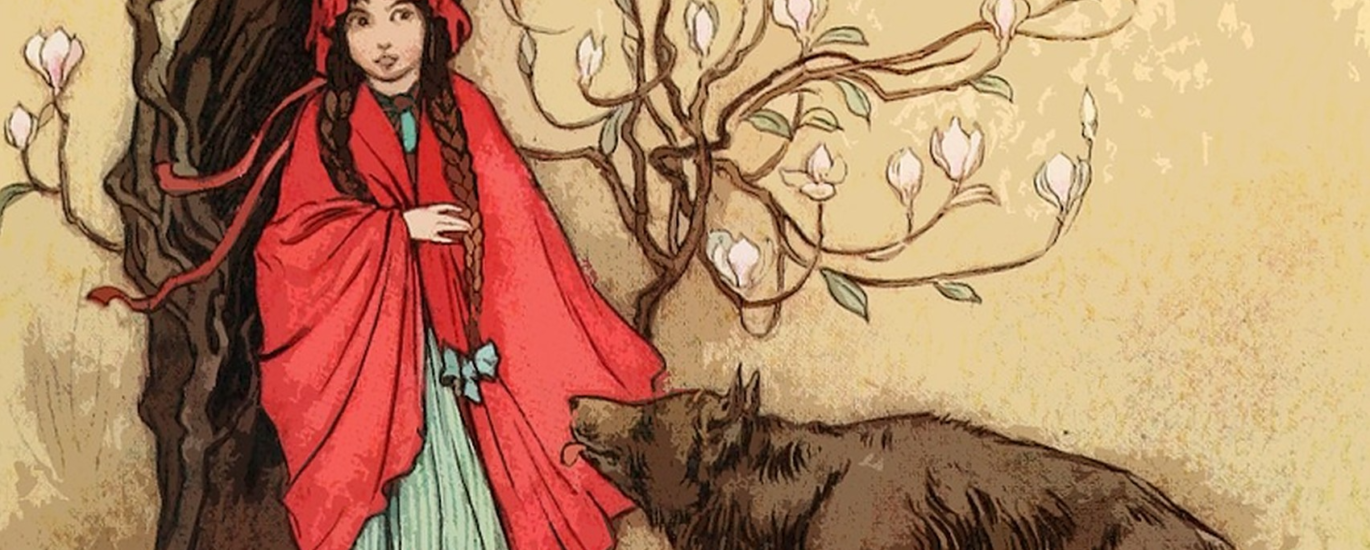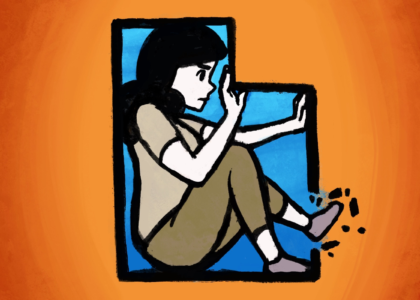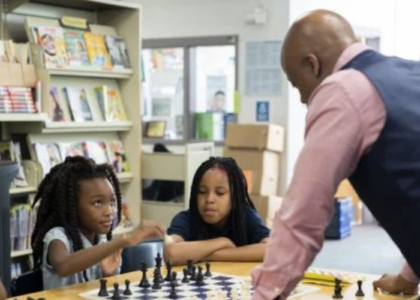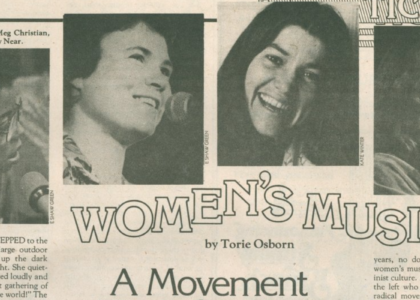“I was taught how to live in a feminist fairytale, but not how to live in reality.”
Many women face realities of patriarchy from alarmingly young ages — the damage that this can cause a child is something we’re still only first coming to understand…and yet, there’s another side to this equation as well: what happens when we hide the truth of our oppression from children? What happens when we raise little girls to believe that the ugliness of patriarchy is behind us, when we tell them feminism was a tool of the past and mis-represent our present-day world as an egalitarian fairy tale?
On today’s episode Amy is joined by creatrix and educator Jessica Harder to explore exactly this dilemma as she shares her stories of growing up with equality-colored glasses, making her way into adulthood and a workforce rife with misconduct, and ultimately takes us into the fashion industry, the Me Too movement, and far beyond.
As a note to listeners, be aware that this episode contains discussion of sexual harassment and abuse. Please be kind to yourselves and take care accordingly.
Our Guest
Jessica Harder

Jessica Harder (she/her) has spent her life revolved around the human body. She began filtering her creativity into designing clothing for the body at the age of four, which led into a fifteen-year career in the fashion industry. At the age of 23 she moved to the Netherlands, where she ,met her husband and lived for six years. After moving back to the United States she changed careers and began teaching yoga and meditation. As a yoga teacher, Jessica has taught athletes training for the Olympics, rock climbers, senior citizens, babies, children, convicted convicts, people with drug and alcohol addiction, yogis, mothers, and pregnant women. She has devoted her career to teaching individuals to come into a deeper awareness of the body and mind. During the pandemic, she started a women’s group called Moms Together Six Feet Apart, which provides support to mothers giving birth during the pandemic. Jessica is currently working on her first book about prenatal yoga and raising her two children.
The Feminist Fairytale
I heard the words ‘patriarchy’ and ‘patriarch’ spoken often in my home. It was always spoken of in a positive view because of the religion I was raised in. I would hear lines like “the patriarchy of the church”, meaning the male leaders who were considered to be inspired by God. And my dad would say things like “Well, as the patriarch of this family…” meaning because he was the male, he was the one who made all the important decisions in our family. My mom, a closeted feminist, would roll her eyes at this line. She would say things to me like “Feminists are man-hates. Now do you want to be a man-hater? Do you?” But then would tell me these stories about gender inequality she experienced and how she rebelled against it. Once she told me a story about how she wasn’t allowed to go to school less she wore a dress of a skirt – this was the rules of the school she went too. As an act of rebellion, and practicality (a skirt was much too cold for snowy days), she would wear her pants under her skirt when she went to class.
I always felt inspired by her rebellion. Rebellion was seen as heroic in my family. My family often told the stories about how my grandfather’s rebellious act saved him from the Germans in World War II. And I always imagined myself in a tale of heroic rebellion. I loved learning about the Civil Rights Movement in the 1960s and how the rebellion of inequality made life better. For all of us, I often dreamed about marching with the women fighting for equal rights in an ERA or Equal Rights Amendment protest. I would be wearing denim, bell bottoms, a long feathered-fringe vest, a crown of daisies and a big smile. I would imagine myself placing daisies in the barrels of the guns held by the police officers ordered to control the women marching. And although rebellion was welcomed by my parents, rebelling against anything having to do with our religion was not.
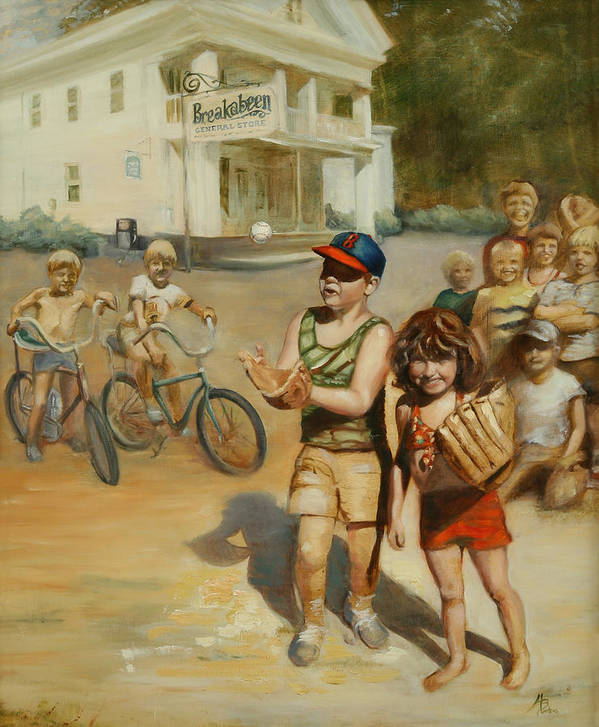
I liked finding ways to rebel against how a ‘lady’ was supposed to act. It was fun. And in my head was as close as I could get to marching with the women in the ERA. My mom promoted this idea. She had been forced to be ladylike her entire childhood by her mother who was very concerned about maintaining the image of perfection, the idea of perfection where girls were well mannered did not have opinions and dressed up for every occasion. Sidenote here: my grandmother was the most opinionated woman I have ever known in my entire life. My mother hated the idea of her children having to act like ladies. In fact, both my parents provided ample opportunities for me to get sweaty, climb rocks, and play in the mud. I was confused. Our church often taught etiquette classes and training on how to be ladylike. And I was not supposed to rebel against our church, right? But my parents wanted me to play in the mud like the boys.
At the same time as I was encouraged to play with the mud like the boys, I was told the fight for women’s equality was over. There was nothing to a fight for; women had won. And the world I was raised in was an equal one. Those women marching with ERA had won equality for all of the women to come. We now have all the same opportunities as the boys, and there is nothing blocking these opportunities. What a beautiful fairytale I was led to believe—the women in the sixties and seventies had saved us all from inequality? Oh, I wish this feminist fairytale version of reality were true. I would’ve had much, much more freedom. I would’ve been free from forced sexual harassment. I would have had the same opportunities my brothers had. I would have been free to speak when situations arose. My body would’ve not been policed. And the Equal Rights Amendment would have actually passed by now.
The policing of my body started a very young age to be honest. So young, I cannot even recall. I just remember the sexist rules always being there. The patriarchy of the church proclaimed a dress code. This dress code required that I have my shoulders, back, chest area, mid body, all covered. And all my clothes had to come to the knees. This meant no, tankinis, no two-piece bathing suits, no tank tops, no low-cut items, nothing backless or with low backlines, no short tops, no low-cut jeans and very, very, very long shorts, dresses and skirts. I lived in Southern California, where though weather was warm to hot with a hundred percent sunshine. These requirements did not take into consideration the climate that I lived in as a child.
In order to make this dress code happen my mother altered my clothing. I had the option to either wear boy shorts, which were naturally longer than girls, or have my mom alter long pants to come to the knees. The only other or girls at school who wore shorts that long were tomboys, which I most certainly was not. I was a very feminine, princess-loving little girl whose favorite color was pink. I felt like I was wearing someone else’s clothing. In my child’s mind, I would imagine my skin burning off as the long shorts touched my body. I hated them. I imagine the transgender population as a similar feeling and reaction to being forced to wear clothing that doesn’t suit their gender.
My brothers did not have to follow the same standards as my sister and I in the hot Southern California summer, they were able to walk around without a shirt on and I had to be fully covered. And my older brother often did walk around without his shirt on, and somedays he just wouldn’t even put a shirt on to start off with! What wouldn’t my parents do if I did the same thing? I didn’t wanna find out, so I rebelled in other ways. I started designing clothes for my dolls. They got to wear everything I did not. My creativity exploded. My parents, both being artists themselves loved seeing me explore my creativity in this way.
By my tween years, I was sketching my designs on bodies that looked like mine. I had a sketch pad that I brought with me everywhere. I would sketch at school and at home, at friends’ houses, on the bus, and even at church. The adults at church loved to see what I was creating. They would flip through my pages of my sketchbook and criticize every design. Oh, those sleeves are a bit short. Don’t you think? Or The neckline on this back dips down a little bit low here. Maybe you should get your pens out and draw a much higher back lin? Wow. So now not only my body was being policed, but the bodies of my illustrations ? What I wanted to say was “Get your rules off my creativity! This is the only space I have where I can imagine freedom for myself.” …But I was just a young girl talking to an adult, and I was trained to be a lady who didn’t say demanding things to others.
This was not the feminist fairytale I was told existed. I thought the women of the ERA had created equality for the world so that I, as a girl, could have the same freedoms my brothers had. And I don’t even have the freedom to illustrate, let alone pick out my own clothes to wear without being policed? So I rebelled in other ways, if my designs on paper are going to be policed, as well as what I wear, then screw them. I started sneaking tank tops and short skirts and shorts into my backpack; shorts that were so short they were above the knee. Oh yeah. I changed on the bus to and from school so my parents would never see. I rolled my skirts up to make them even shorter. When I got off the bus, I finally got to make my own choices about the clothing I wore and how I expressed myself with those clothes. And it felt liberating.
The policing of my body started a very young age to be honest. So young, I cannot even recall. I just remember the sexist rules always being there.
The liberation I felt by wearing what I wanted, my parents felt in nature. My parents loved the outdoors. They raised me, my two brothers, and my sister to explore and find adventure in the outdoors. My father, being a professional rock climber, wanted us to love nature as much as he did. We even had a climbing wall on the side of our house with an overhang that, if you climb to the very top, you could sit on top of this ledge. On top of the climbing wall was the place where I went when I needed to contemplate or be alone. It even had a view of the mountains.
As children, we hiked mountains, packed rock climbed, and got really dirty and sweaty together. Through this exposure, my sister and I went to love climbing and my father loved seeing my sister and I develop as climbers. We both became skilled and soon we were able to out-climb both of our brothers and our dad. But unfortunately, as we grow older, my sister and I were left out of a lot of outdoor adventures. The church we were raised in had a Boy Scouts program set up for all the boys to join. They went on adventures, overnight explorations, and backpacking trips. The church did not have anything remotely similar for the girls. The girls were taught etiquette, knitting, and polite indoor activities. Basically, the girls were taught how to be ladylike; exactly the thing I had been avoiding. We did nothing where we would be challenged physically in the way the boys were. Nothing where there would be sweat or dirt. And if it wasn’t enough, both of my parents were leaders in the Boy Scouts, so I was exposed to everything I was missing out on.
I would watch my mom leave to Boy Scout camp and talk about all the cool things the boys got to do there, like archery and climbing. And then watch my dad and my brothers leave on these backpacking trips almost every month while my sister, my mom, and I had to sit at home. We might have gone to a church activity where we were taught some skills ladies need to know, like how to cook a meal or change a diaper (also known as activities I had no interest in). My brothers and dad would come back with these epic stories about their adventures. I loved and hated those stories. I loved the adventure and the thrill of them all, but I hated that I was not a part of the tale.
I got to the point where I couldn’t listen anymore. I would lock myself in my room when they came home from these trips, so I didn’t have to hear about the excitement I had missed out on. All these things I couldn’t do because I was a girl. Sometimes I would cry alone in my room and others, I would just scream into my pillow. The emotions were real. Adventure after adventure I watched the boys in my family go out into the world while I sat at home, soaking in envy. I loved those trips. I didn’t wanna be a boy. I loved being a girl, but I wanted to have the same opportunities my brothers had. I wanted a life full of adventure, like what they got. I questioned: why did the boys get to go on these trips, and I have to sit at home and learn how to cook and change diapers? Why did a penis give you the ability to have more adventurous opportunities than a vagina?
It did not make sense to me. I was just as skilled and even better than my brothers at all of this outdoor stuff anyway. This was Gender Inequality, except little girls don’t know those words yet. Little girls use the words like Why do the boys get to? and How come the boys can go do this but the girls have to go do that? And then I became defiant rebellious. Or as I saw it, I was engaged in a heroic rebellion of gender inequality…but I didn’t have those words yet because I was just a little girl. So it was more like I was going to do all the things the boys did. I thought I didn’t need a penis to have adventures. So the next time my mom was going to Scout Day Camp, I snuck in the back of her car and pulled the blankets over my body.
I lay there as quiet as I could be, and I made it all the way there undetected. When I saw what my brothers got to do at Scout Day Camp, I realized it was even more amazing than I had imagined! They had archery, climbing, ropes courses, and many, many other adventurous activities. I was thrilled to be there! It was an explosion of adventure. My heart was pounding. Where do I start? The ropes courses, the climbing wall, the mud pit?! But when my mom discovered me, I was not allowed to participate. She said, “This is Scout Day Camp and you are not a Scout. So you have to let the Scouts do their thing and you can watch.” But all I heard was this is for boys and you are a girl, so you have to stand on the sides and watch the boys have all the fun. I wondered how rebelling and wearing pants to school when you’re not allowed to was so different from rebelling and claiming scouting is for you when it was designed for boys. I was just rebelling against a system that didn’t consider what I wanted, just like my mom.
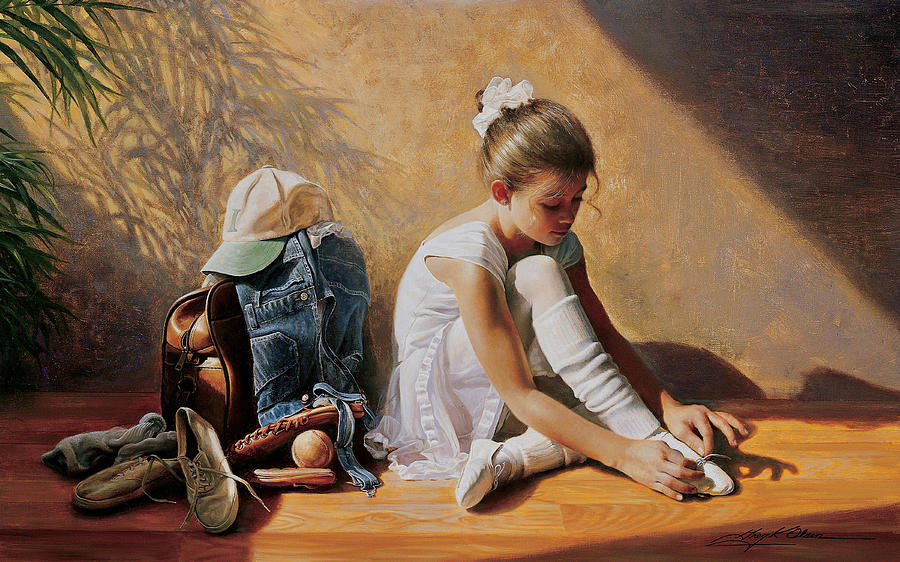
I questioned: why did the boys get to go on these trips, and I have to sit at home and learn how to cook and change diapers? Why did a penis give you the ability to have more adventurous opportunities than a vagina?
I wasn’t in charge so I stood there on the sidelines and watched all the boys shoot arrows and climb ropes courses all day long, knowing I could climb faster and do it all better than them. It was miserable. I had had enough and my rebellious nature erupted out of me the next Sunday at church. I stormed up to my church leaders and said, “Why can’t the girls go on camp outs? Why do the boys get to have all the fun while we are stuck at home? Can’t we just do our own thing? Can’t we just create our own adventures? We don’t need Boy Scouts. Let’s create our own girls adventure group and go backpacking and shoot arrows and rock climb.” My leader looked me straight in the face and told me, “Girls don’t wanna do this sort of stuff.” And I said, “But I’m a girl. And I’m telling you that I wanna do this stuff. Are you telling me that I’m not a girl or that I don’t exist?” Her reply was “Well, no, but other girls don’t wanna do this stuff. There are just not enough girls who wanna do this stuff.”
I looked around the room at all the other girls at church, forced to wear dresses and forced to look the part of something ladylike in order to appease a system we were all trapped in. They were my friends and they were an adventurous, daring group of girls. And I knew that. So I said, “Who here would want to have adventurous, like the boys who would want to get sweaty and dirty and climb mountains?” And I, as I looked around, I started to see hands go up. Almost every hand was raised. I said, “Look, the girls want this. We’re all girls. And we exist. And we exist right here in front of your face. And we want adventure just like the boys have.” And then I was told, “Well, we just don’t have the budget for that sort of thing.” Ooh, I couldn’t hold it in. I was so angry. I belted out “What?! So you are telling me there’s enough money for the boys to have their adventures, but not ours. So you’re saying that the patriarchy of our church has actually set it up this way. So you’re saying that the patriarchy of our church thinks that boys adventures are more important than girls adventures. So you’re saying the patriarchy of our church thinks boys are more important than girls. Is that really what you’re trying to say here?” But what I really wanted to say, but didn’t have the words yet because I was just a young girl, was “So you’re telling me we believe in a church that perpetuates sexism and gender discrimination?”
She started stumbling over her words and wasn’t able to come up with an adequate response, every excuse as to why we couldn’t have the same thing that boys had left a sexist taste in my mouth. But at that age, I didn’t have the words to call it sexist. And so there I was stuck in a system holding me back from living a fuller, more experienced life. And it wasn’t a man who was holding that system in place. It was a woman. This woman was so used to girls not having access to what the boys had she couldn’t comprehend anything else. This was our world as it existed and she couldn’t see another one. But I could.
By this point I knew that the feminist fairytale I was led to believe did not exist, but it could, we just needed to start changing to create it. This same religious culture was very focused on grooming young girls to be good wives and mothers. This role of wife and mother was idolized and glorified. A lot of the girls I knew would dream about their future husbands and kids. They would talk about their kid’s names they had picked out already and what their wedding dresses would look like. This grooming did not work on me. I hated the idea of having kids and being married. It felt like a way to put an instant stop to my adventure and exploration and personal development. So while those girls were dreamed about kids and husbands, I was dreaming about adventure and career and going to school.
There was one problem though. My parents had no money for me to go to school. So I had a choice: do what I was taught in church and forget about school and find some man to financially rely on, or, start saving money and get educated. So I opened a bank account and started working at the age of 10. I spent every weekend babysitting. A hundred percent of the money I made went into that bank account that I opened for school. By the time I was legally able to get an official job, I did. Every hour I worked was a bit closer to being able to pay for school. I needed all the money I could get. This job was important.
…it wasn’t a man who was holding that system in place. It was a woman. This woman was so used to girls not having access to what the boys had she couldn’t comprehend anything else.
One of the first official jobs I had was at Claim Jumper, a restaurant. I got the position as a hostess. In this role, I would escort guests to their table and make sure the servers did not get too many guests seated in their area all at once. It was a great job because I could work nights when I wasn’t in high school and my shifts began late enough for me to get all of my homework done before. The work environment was extremely flirtatious. All the men I worked with would flirt with all of the women. On my first day, I noticed many of the men slapping the butts of the women I worked with. After a few days of work, the flirtations were directed towards me as well. It started innocently enough: a compliment on the way I looked from a male colleague, nothing to make note of, his hands on my shoulder, but then his compliments became more sexual — “Oh, those tights look damn sexy on your legs” — and his hands began to move. His sensual grab of my waist and his comments became more sexual. “Oh, I’d love to take those tights right off of you” and his hands moved. His hands, grabbing my waist, followed by a caress of the hip down my outer thigh and his comments became more sexual. He came in so close I could feel his breath on my neck as he whispered into my ear, “Oh, what I would do with you if we were alone in a room together, those tights would come right off” and his hands moved, his caress of my butt followed by a tight squeeze.
I would like to mention, let use the word “he” and his instead of a name because there were too many men to remember all their names. I would watch my female colleagues receive the exact same attention. I would receive these sexual comments and sexual invasions onto my body several times, each hour at work. The perpetrators were all men. Most of these men were much older than I. Some of the men were well into their forties, me being only 17 years old. The perpetrators were all more senior than I in their positions at work.
A few of my friends at the time also worked in restaurants and the atmosphere there was exactly the same. My friends did not report about the sexual harassment and neither did my colleagues or I. Who would we tell? What would’ve happened? The only thing I could foresee by reporting this sexual harassment was a more hostile work environment or losing my job, and losing my job meant not going to school and having to find some man to financially rely on for the rest of my life.
I was young and especially young in my work experience. I questioned: maybe this is just what it meant to work as a woman? Maybe if you want to be self-reliant as a woman in this world, this is just part of it. Maybe if you’re going to choose to not be financially relying on a man, you are just going to be bombarded by the sexualization of your body. My upbringing did not prepare me for this sort of situation. This work experience was nothing like the feminist fairytale I learned as a child. What I really wanted to say was me too. But those words had not arrived yet. This was four years before Tarana Burke posted her first Facebook post with the phrase “me too”, and 15 years before “me too” became a widespread movement.
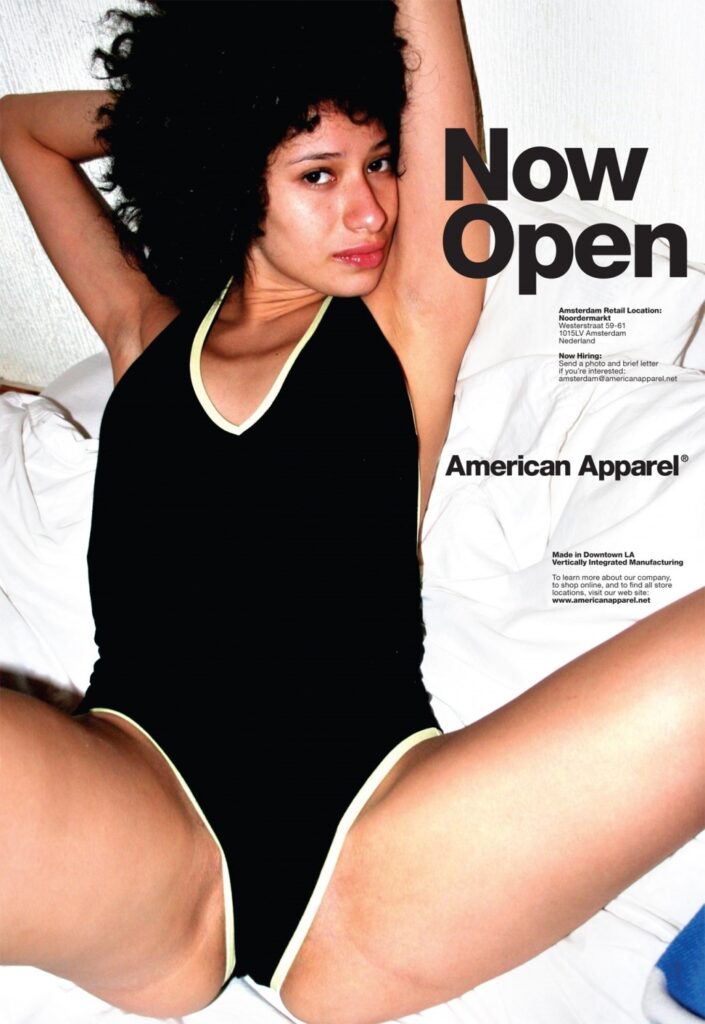
I did make enough money to go to school, and I had many years of a well-developed career. I was able to work in multiple countries in the field I had studied for: fashion. One of my positions was at American Apparel. This is a company that has been praised for its female leadership, anti-sweatshop production, and support given to immigrant workers. Dov Charney, the CEO and founder, was known for promoting young women to high-ranking positions quickly in their careers. But he was also known for molesting the women who worked for him. All you have to do is type in his name to a Google search, to see the stories about Dov raping employees flooding in the LA Times, The Guardian, NPR, The Village Voice, Times Magazine have all written about his sexual exploitation and the list goes on and on.
The company was also criticized for their extremely sexual ad campaigns. I once received a huge poster for the office, several feet high, of a woman wearing sheer lace underwear. The image was only of her crotch, her legs wide open, and she laid on a bed with her pubic hair in its fullest length exploding outside of the underwear. These were the images I was surrounded with at work. Dov blurred the lines between work life and private life. I remember being on conference calls with him every week. He was known to take these calls from everywhere. And when I say everywhere, I mean everywhere. I often heard toilets flushing in the background, even when these were calls to all of Europe. And if you looked on American Apparel’s website and clicked on ‘Meet Our CEO’, you could see a picture of Dov Charney sitting on the toilet and taking a call. He liked his employees to call him Dov.
He had a mansion in LA with many extra bedrooms; female employees who were in town for business were given these rooms to stay in instead of a hotel. This was just company protocol. The other rooms were given to other female employees who were invited to live there for free. It was widely known in the company that his home regularly hosted employee orgy sessions. The Guardian recorded him telling one of their reporters that “sleeping with the people you work with is unavoidable.” And this sexual culture ran rampant in the company. Everything was acceptable. I worked for American Apparel on the other side of the globe in the Netherlands, but the company’s sexist culture was strong enough to leap over oceans. I would get to work and have to listen to my male colleagues talk about their orgy they had in the company apartment the night before. Other days, they would talk about the women they brought back to the company apartment, sometimes calling them by their hair color — the brunette or the blonde one, instead of their names — because they have hadn’t even put the effort to ask their names.
These stories were always told by the same group of white, British, cisgendered, heterosexual men. The Dutch men I worked with never participated in the orgies or the conversations about the orgies, but they also never spoke up about the discussions they had, with the way women were degraded, or using company property as a sex den. I don’t blame them. They would’ve lost their jobs. Now, as I said earlier, women were known for getting promoted very quickly in the company. Unfortunately, the country I worked in was run by Mark, a white, British, cisgendered, heterosexual man who love to promote other white, British, cisgendered, heterosexual men and women he was sleeping with. 100% of the British people working for the company in the Netherlands were white, cisgendered, heterosexual males in leadership positions. And 100% of the women in leadership positions were sleeping with Mark. In a country full of Dutch people, there were no Dutch people in leadership positions, maybe because the Dutch people didn’t agree with Mark’s sexual biases.
In my naiveness. I actually believed that if I worked harder and more effectively than anyone else, I could move into a leadership position without sleeping with Mark or Dov. Boy was I wrong. I worked 70 plus hours a week and soon became the go-to person for all questions from employees. I was the one my colleagues trusted and relied on the most. Colleagues often walked straight past one of their white, British, cisgendered, heterosexual male leaders to me for all inquiries. I was running the place without the title. And without the pay. Mark noticed and called me into his office, he said, there’s a leadership position opening up and I was perfect for it. He said I would have a pay raise in a month and we would announce my new position then, but for now he asked me to start my new role as a trial phase. And then he told me, “But don’t tell your colleagues, you are doing a trial phase for this new position.” This was all very confusing. I started working in that position the next day. I was now working in a different section of the building and I was not allowed to tell my colleagues that I was in a trial position to become their new boss, but somehow had to find a way to lead them. Soon after, even though nothing had been stated, my colleagues began to see me as their leader.
This was very obvious to me when several of my female colleagues came into my office one by one to talk; they were there to report claims of sexual harassment. Mark, my boss was creating an unsafe work environment by sexually harassing many of my female colleagues. How was I supposed to protect them and myself in a company like this? Who was I supposed to report this to? My boss was the one doing the sexual harassment and the next person above him was Dov himself. Dov, a known rapist, would never take this seriously and the HR department was in LA and known for throwing these claims out. Just a week into my new trial role and I felt trapped by someone else’s misogynistic actions. I didn’t know what would’ve been the best thing to do here. And I still don’t. I didn’t know what I could do so we would all make it out with our jobs and Mark would be adequately punished for his actions. And I still don’t. My upbringing did not prepare me for this sort of situation.
It was widely known in the company that his home regularly hosted employee orgy sessions. The Guardian recorded him telling one of their reporters that “sleeping with the people you work with is unavoidable.” And this sexual culture ran rampant…
How would those lessons on how to cook or change diapers help me here? How would that feminist fairytale that the Civil Rights Movement had solved sexism be any use to me? So I did something terrible in order to keep our jobs and attempt the best outcome for my female colleagues and myself. I gave terrible advice. I told them the next time Mark makes a sexual statement or slaps your butt, don’t laugh or smile or giggle, just stare at him with anger and disgust. And if I overhear him making comments or touching you, I will do the same. I wanted these small actions of disgust to morph and change the culture. But what I really wanted us all to do is to be bold and walk out, just stand up and say, “We don’t exist for your sexual amusement” and walk out all together. But I was not born with the privilege my male counterparts were, the privilege to stand up for yourself and not worry about being fired. The rebellious girl inside of me hates my delicate version of rebellion. But the girl inside of me that has rent to pay and a stomach to feed knows that was not an option.
It was normal in the Netherlands to go out for a drink or two with colleagues after work. Mark regularly invited me out for these occasions. They almost always led back to the company apartment aka the company sex den. I made it a point to head home before drinks at the Breuna Cafe, a local small cafe slash bar, moved to drinks at the local American Apparel sex den. I didn’t want to be part of the next company orgy story being told at work the very next day,
A month later, Mark had not given me a raise he had promised and also had not announced my new position. I him about this and he looked me straight in the face and told me our meeting had not happened and he had never promised the raise or promotion. He said I had made it all up, but I had it all in writing in an email recap of our meeting. I let him know I had that email. And then he said, well, things have changed. And that was that. He was not going to promote me, the woman who did not sleep with him. I wondered: was my trial period a trial to see if I would give in to the corporate culture and have sex with Mark in order to earn the promotion? Did I fail miserably at my trial because I wouldn’t sleep with him or any of the other men in leadership roles? Did I fail at my trial period because I would not join in on the company orgy sessions?
Officially, I was never given a reason why I didn’t receive the promotion, but in a company where your CEO is on record saying sleeping with people you work with is unavoidable, is there really a question as to why I didn’t get the promotion? I think the real question is why did I stay so long? A month later I found another job and walked out…after a month’s notice, of course. The rebellious girl inside of me wanted to walk out that the day I got that new job and say “Fuck you, you misogynistic twat” to Mark, but the girl inside of me that wants to maintain a professional track record did not have the privilege to use those words.
That next job was with no other than Rem Koolhaas, a legendary architect turned shoe designer. I’d been following his work for a long time and idolized the people who got the opportunity to work for a company with so many groundbreaking designs. The first shoe he had created won many prestigious awards for design. And I got to work here in this progressive work environment, a workplace free of misogyny and sexism, a workplace where I may be able to find that feminist fairytale of equality, or at least I thought.
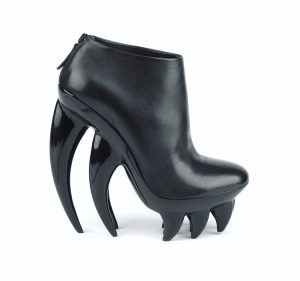
I began working in sales. But when a position opened to work as an inventory manager, I jumped to the opportunity. I’d had years of experience in inventory management. I had a natural talent for this role and I had excelled in the past. I knew I was better at an inventory manager position than any sales position. I immediately sent my resume to my boss, Ariel, the corporate head office manager, who was interviewing for the position. I had worked with Ariel for a year, and she knew I was hardworking and capable. I had prepared for the interview. I had numbers and references from passed experience in the same position. By this time, I knew the company in and out. I was a shoe-in…no pun intended. My interview went phenomenal. And then Ariel said, “Well, I have no doubt you’re capable of this role, but I really foresaw a man in this position.”
Sadness and shock hit me all at the same time. How could a lack of penis be the only thing, hold me back from this position? How could a penis help me be better at this job? How had my boss — a calm, collected, intelligent, and pragmatic woman — become so misogynistic? It was Boy Scouts all over again. I asked why a man would be better for this role and what was I lacking besides a penis? Of course, I asked what I could develop in order to be more suited for the role, but her mind was made up: a man was going to fill the position and nothing I said or did could change that. I wanted to say, how could you, a woman, deny another woman a role in this company based on her sex? I hope you understand this is illegal to deny me the I was very well suited for on the basis of me being a woman, but those words were too risky. My job was at stake here.
A few weeks later I met Martin, the man that had what I was lacking, a penis and a job as the new inventory manager. My curiosity was running rampant. I needed to know his career background. I needed to know why he was hired instead of me. And so I asked, as any colleague does when a new colleague was introduced “So what did you do before this?” Martin answered, “I worked in an ice cream.” What?! An ice cream shop? I thought surely he must have had some experience in his past before the ice cream shop that was relevant. So I asked, “so is this your first job working in fashion or with inventory?” Martin answered “Yes, actually the ice cream shop was my first job ever. I’m a student.” I continued the conversation in order to get more information I needed. “Oh, so you were studying anything in fashion or production then?” “No, accounting.” I tried my best to hide my explosive outrage. I wanted to interrupt and say, what the hell was Ariel thinking to hire an unexperienced man over me?! But the training I had as a child on how to be ladylike kicked in and I held those words and I held my outrage inside.
They chose someone with no experience in fashion, no experience in inventory and no interest in a career in this field, to get a penis in the position. Meanwhile, I was tossed aside, me having a degree in fashion design and production and 12 years of experience in the fashion industry, along with two years of experience in the exact same role. And so I knew exactly what he had, that I didn’t…something I would never have. And that was a penis. That was the only thing that he had that I did not that got him the job. And when my boss said, “I really foresaw a man in this position”, what she really was saying is “all you need is a penis for me to hire you for this position.”
Martin and I became good friends and I never told him that I had been interviewed for the position. I held that story in like a lady that doesn’t speak her opinions. Later in life, I had the kids I swore I would never have. After my first, I switched to consulting work. They said I could do part-time in order to move into the role of the lead parent in our home. This was the step away from my career I swore I would never take, but my husband’s income made much more money than I did so it wasn’t practical for him to leave his job (even though he wanted to be the lead parent, and I wanted to be the one worked). One of my consulting jobs was with a company created by my previous boss. He had sought me out when starting his new company. We had a great working relationship with mutual respect for each other. I spent a year working for this company before I found out that I was pregnant with my second child.
The pregnancy was very, very challenging. I had difficulty walking due to a fracture in my pelvic bone, a symptom of the pregnancy. This forced me to take my maternity leave a month earlier than I had planned. It became very painful and challenging to even walk across my living room at home. I soon needed assistance to walk. And during the birth of my daughter, I could feel and hear my pelvic bone cracking, leading to further injury. The months following my daughter’s birth were physically challenging. I wore a pelvic brace at all times, and sometimes two for extra support. Standing was extremely painful and walking was impossible without assistance for the first several months. I lacked the physical capability to even attempt physical therapy, but the very moment I was physically able to, I began physical therapy. My physical therapy regimen took two hours every day. This often cut into my sleeping hours because my days were filled with breastfeeding and childcare. On a good night, I got about four hours of sleep.
My childhood that taught me that childbearing was a gift from God did not prepare me to handle this disability. I was left with the severe injury which left me physically incapable of returning to work. I was in constant contact with my boss about my physical situation and my needs for an extended maternity leave. I continued with physical therapy for six more months before I was physically capable of going back to work. I was eager and excited to go back to the consulting position. I wanted to feel like myself again and not this broken fragmented body working again was a way to be closer to my old self, my whole self, the self that I knew myself to be. So I contacted my boss and let him know I was ready to come back to work. I was informed that my position had been filled.
The devastation hit me like a tidal wave. I wanted to say, this is against the laws in California that protect women when they leave on maternity! If you don’t give me my position back, I’m going to get a lawyer. But those words weren’t true because I was not a full-time employee. I was a consultant, and the laws don’t consider the many women, working mothers, who choose to be consultants in order to fill a role of lead parent in the home. I was not protected by the law.
My upbringing that glorified motherhood had not prepared me for a world that saw mothers as irrelevant and replaceable. I was taught that fighting back against the rules was heroic, but not necessary anymore because the rules were no longer sexist. I was taught to be rebellious, but not taught about the consequences women faced when being rebellious. I was encouraged to be creative, but then scolded when my creativity crossed lines girls weren’t allowed to cross. I was taught to climb rocks, but then to told rock climbing was for boys. I was taught that me too didn’t happen anymore, but not taught about what to do when it actually does happen. I was taught I would never have to trade sex for a promotion, but not told what to do when that was the only way to be promoted. I was taught I would never be turned down for a position based on being a woman, but not taught about how to manage the rage when it happens. I was taught the world embraced and respected mothers, but not taught what to do when I, as a mother, was replaced. I was taught how to live in a feminist fairytale, but not how to live in reality.
I struggle with what to teach my daughter. I want her to know that she can reach for the stars, but I need her to know what to do when someone blocks her path to those stars. I want her to believe that the feminist fairytale is possible, but I need her to know that there is still work to be done to get there.
Get your rules
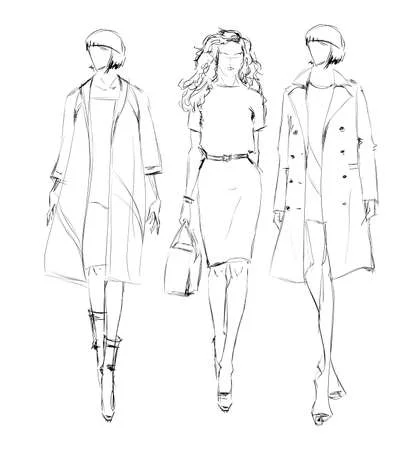
off my creativity!
Listen to the Episode
&
Share your Comments with us below!

